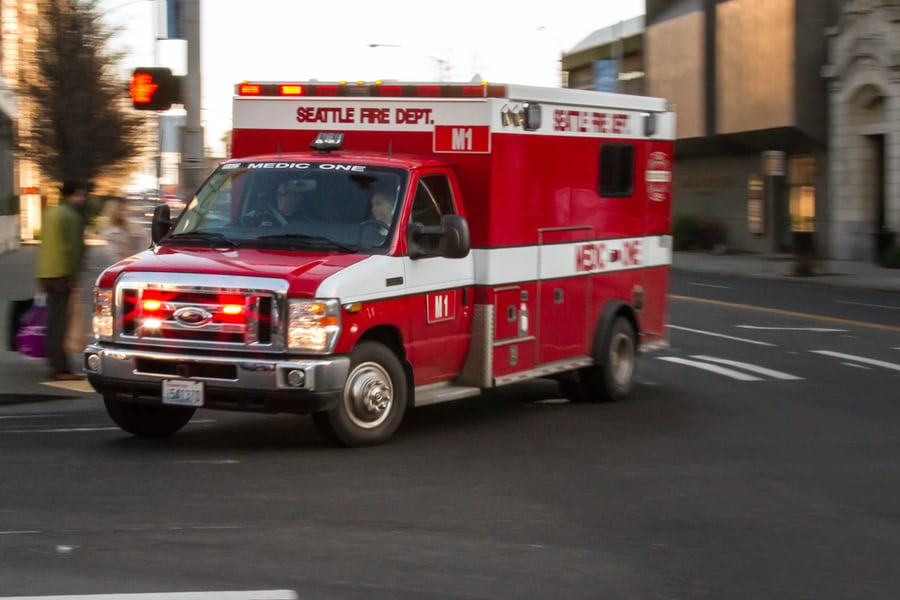You would think when one is insured, they are protected against whatever they paid to protect themselves against.
After all, that is the sole purpose of insurance.
An insurance policy is a contract between the insurance company and the insurer to cover any damage, loss, liability, harm or anything else that could possibly go wrong. Might as well not get insurance if nothing covers it or one isn’t at risk which unfortunately is impossible.
Life happens and you don’t want to pay out of pocket astronomical costs for something that can be covered with insurance for less. Yet Americans don’t seem to realize that concept and even worse those who do pay premiums on a regular recurring basis still owe large bills if an unexpected charge comes up!
The number one reason Americans get into debt is due to medical expenses. Thankfully this number is declining as people learn from their mistakes, especially this time around as covid was a sounding alarm in the health care world. Although treating covid is covered, not always. A quick 2-min ride with the EMS service to the hospital has cost people a few thousand due to the EMS being out of network.
In 2020, roughly 55% of the U.S. population, an estimated 180 million individuals had medical insurance and the rest are living on the edge.
It’s sad to realize in a country that is known to be free for all and “united” refuses to adopt a social welfare system which decreases wealth inequality, poverty, the wage gap, mental illness and in turn, increases government assistance, free education, and insurance. America is made to be hard and work for those who set and abuse the tax laws.
Europe may not be the most innovative, expansive and glorious continent but it sure has people that can take care of themselves. After all, the nordic countries consistency rank as the happiest nations in the world because they know the government has their backs. It’s normal to not be employed after graduation in Europe. Thanks to the bank of mom and dad plus the handy dandy government, one can be a broke Slovakian college student as long as they wish. Not that I recommend it.
While in the United States, even the insured can incur astronomical bills from a quick ride to the ER or ingesting some magical pain killer. It shouldn’t be normal to have to confirm your insurance covers the cost of assistance when you are in pain.
What a royal pain and abuse.

Insurance World
There’s a lot of jargon, plans, pricing options, time frames, age limits, restrictions, you name it when it comes to insurance. Similar to annuities, the stage of retirement, old age and the health care industry seem to be the most convoluted out of all areas in finance.
Why?
Because America’s health care system, Medicare, Social Security and government is built that way.
The basic thing to know is that you need to be protected. Just like you need warm clothes and a roof over your head, you need a seatbelt and invisible protection for a peace of mind.
Being overly optimistic and certain about the future doesn’t work in your favor and can be disastrous.
Why?
Similarly to in the markets, no one has a crystal ball and can predict the future. We are all crossing our fingers and must plan for the worst hope for the best to deal with what’s in our control. Everything else is uncertain.
Unless you are living under a rock, don’t have dependents and somehow have perfect health and luck for the next 70 years, you don’t need insurance. Sadly, none of us fall into that category and want to build a family and experience life which requires us to take precaution and have a plan.

Insured 101
On a basic level, insurance is when you are paying an insurance provider premiums on a regular basis in hopes of it providing you assistance if an unexpected charge comes up. In terms of universal or whole life insurance, a cash payment and death benefit will be provided to your beneficiaries.
Compared to life insurance, any other type of insurance ranging from home to auto protection are the same deal. For medical insurance, you pay a health provider to cover any unexpected costs if something were to happen. Without going too much into depth, life insurance covers any possible injury, disability, fees, or incapacitated circumstance you can think of where you are unable to take care of yourself or make decisions on your behalf. That’s where wills come into play but we won’t get that deep today.
Most health care plans require a deducible where you must spend a certain amount as well to be covered not including a co-pay. It can all add up even with insurance.
Although recurring payments to billion-dollar insurance companies seems like money down the drain when you are safe and sound, at the end of the day or whenever need be, insurance provides you and your loved ones a support system when in need. Or at least we thought so…
Essentially insurance is just a bet against your life. AllState to Geico and other large insurance issuers gather your creditworthiness, medical history, and propose a projection on how long you’ll live to determine what your rate will be. While you supply the cash payments for a term life plan, they use that money and invest it to make a profit. If you die before your plan expires, they loose more than your beneficiaries keep since the contract states you receive all your premiums back once you, the insurer, passes.
In essence, insurance seems pointless for the most part until it doesn’t.
Why pay for something when you don’t receive a benefit from it?
You can’t predict anything and although monthly payments do eat into monthly/yearly bills, especially when you want to cover everything possible in your life from your health to home, car to disability, in the long-run it’s a no brainer as it provides a guaranteed cash payment and assistance if hiccups happen.

Protected Or Not Protected
Now that we’ve covered the basics of insurance, let’s understand why medical debt is suspiciously high and comes out of nowhere. In a logical world, a.k.a. any country besides the U.S., if you have an injury and need to be rushed to the hospital, no one should go through the hassle of confirming moments before a possible life or death situation that the victim has the correct health insurance that is accepted by a certain ambulance.
Do we really have to select which ambulance we need to drive us to save our wallets not life?
I thought help doesn’t come with a cost!
The US healthcare system is extremely complex and expensive. The No Surprise Act, enacted in December of 2020 that provided consumers with certain federal protections against gaps in coverage for emergencies and services provided by out-of-network clinicians at in-network facilities doesn’t seem to work as well anymore.
Many essential providers such as hospitals and ambulance companies are now turning private to bump up the costs to take advantage of those in need.
When you call 911, it dispatches to the local police station, fire department and EMS stations. It will call anyone regardless if it’s in or out of network. Not until you are fully recovered or your loved one takes notice, will have to deal with the astronomical bill. Although you can request an ambulance provider in your network, depending on your location, the call center most of the time decides anyway.
Out of the 180 million people insured with medical insurance, 79 million Americans have problems with medical bills and debt. This is astonishing as the average amount equates to $2,424k per year. According to the NYTimes, ambulances have the highest out-of network billing rate and they have a potential to generate a surprise bill as 71% of ambulance rides are out-of-network.

Ways to Stop Getting Cheated On By The Health Care System:
-Know your local ambulance transport providers and emergency services as it varies on location
-Check in with your health insurance and know what it covers in terms of emergency transport and all other types of medical support
-Realize there is no single federal agency observing EMS anymore, many states such as NY, California, Texas and Florida don’t even consider EMS an essential service not supported by gov’t to fund ambulance providers!
-Volunteer-based providers are shrinking causing private companies to charge the insured double
-You can negotiate the bill. Anything is possible and make sure your health insurance has a reliable customer service line not overseas who you can’t get in touch with nor understand
-Always have a backup and someone who can help you in case of an emergency. A friend doesn’t always have the right equipment or staff yet if they can help you, they most likely won’t charge you $10k for a 10 min car ride to the emergency room let alone anything if they’re generous
Now, if you absolutely have no way out and have to deal with a surprise ambulance bill that isn’t covered by your insurance, there are a few ways to reduce your medical bills all together:
-A large chunk of medical expenses contribute to bankruptcy filings as high credit card interest rates cause medical debt to grow so make sure to pay off your dues on time or lower your plan
-DO NOT SKIP CHECKUPS. SEE THE DOCTOR. THEY WANT TO SEE YOU.
If you want to renew or upgrade your health insurance plan, you need to do a health screening as the cash premium amount is dependent on how healthy you are. If you are healthy, in good shape and expected to outlive your plan, the insurance company will charge you more or less if not.
Don’t cut corners on health insurance as they become more expensive to treat later on in life. Don’t have aversion to doctors and hospitals but they are there to help you, not always the wallet though.
-Don’t pay for transport or assistance if you don’t need to. There are too many hidden lingering costs that in turn make the health care industry the largest most profitable industry in the U.S.
-Know what you are getting into and ask about everything!! Providers can be sneaky and can’t or won’t give you prices all the time. They won’t charge you until a month later so ask someone at the front desk to give you a cost estimate and most importantly a final say by the doctor or nurse
Medical pricing is opaque and shady. Providers and insurance carriers have sadly set it up that way to profit off of suffering.
You must do the work beforehand and understand what your bill in the future can entail. It’s best to expect to pay more so you are really prepared. As patients usually deal with multiple providers for a procedure or even during a small incident, it’s vital to consider all parties. This is a hassle and a lot of work but worth it.
Asking the right questions, paying your dues on time, not skipping out on the appointments and being an educated consumer will allow you and your wallet to stay healthy.
Take care of yourself because no one will do it for you.

